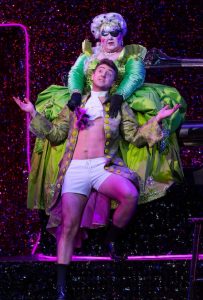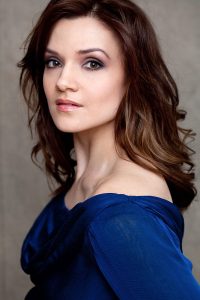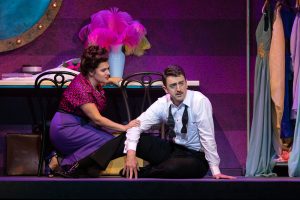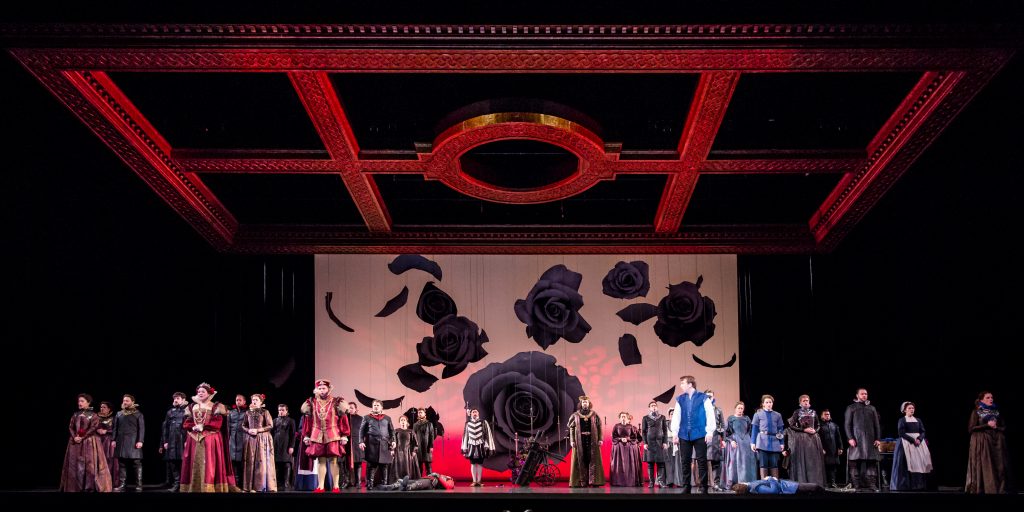
Ben Bliss is a Prairie Village native and graduated from Shawnee Mission East High School. / Photo by Dario Acosta
Ben Bliss is no stranger to superlatives. During his rapid rise to the top of the opera world he has been called “one of the leading Mozart tenors on the scene today,” “close to the ideal,” “a revelation,” and at Lyric Opera of Chicago, “perhaps the finest Mozart tenor that has graced the Lyric stage in the last years.” The praise, moreover, has not been exclusively in the arena of 18th-century opera: One critic wrote, of his Tom Rakewell in The Rake’s Progress, that he “proved himself … to be a peer of the best Toms in the opera’s seven-decade history.”
Yet many continue to regard Ben as a “Mozart tenor,” even as he has begun to move into other areas of the repertoire. That might be about to change. This March 9th through the 17th, Kansas City audiences will be the first to hear his role debut in Gounod’s Roméo et Juliette, a significant foray for Ben into French Romantic opera that is destined to make the music world take notice.
The visually stunning production, directed by Matthew Ozawa and conducted by Christopher Allen, also features soprano Andriana Chuchman as Juliet.

Ben Bliss (Tom Rakewell) appeared in Boston Lyric Opera’s production of The Rake’s Progress with legendary soprano Jane Eaglen. / Photo by T. Charles Erickson
Like many tenors before him, Ben is finding that his voice is taking on new timbres and colors as he pushes 40: a richness that is allowing him to explore more full-bodied roles. It is an exciting, if somewhat scary, process in singer’s life that requires patience and care. ‘
“Every few years you have an ever-so-slightly-different voice to work with,” said the Prairie Village native recently, during a hiatus between performances of The Magic Flute at Bavarian State Opera (Tamino) and Don Giovanni at Toronto’s Canadian Opera Company (Don Ottavio).
“So it’s not like you can say, okay, I’m 25 … and I’ve figured out how to sing, and I’m just going to shift into fifth gear and hit the gas and cruise for the next 30 years. … You have to keep adjusting and learning, because if you’re trying to sing at age 40 the way you did when you were 25, it’s not going to work the same way.”
The pandemic allowed Ben time to process some of these changes. “It was the only time in the last decade that I’ve been able to stay in one place for longer than a couple of months,” he said, “and that was really grounding and helpful.” During the downtime he was able to “make the commitment to keep working … to continue to grow with my voice as it changes.”
The changes are “hard to describe,” he said. “It feels like it has a little bit more depth, a little bit more of a burnished quality.” Ben still loves singing Mozart, “and it’s been a wonderful blessing to have those opportunities. But I’m in my late thirties now, and the voice continues to grow and mature. As you age, you have faculties at your disposal with which to color things, to play and explore. My voice is opening in a way that makes some of this new repertoire like Romeo and Juliet feel like an option: something to explore.”

Andriana Chuchman is making her role debut in the Lyric Opera’s Romeo and Juliet. / Photo by Chia Messina
Ben’s rock-solid training as an artist has established a firm foundation for this evolution: from his early singing at Shawnee Mission East to his undergraduate work at California’s Chapman University, and from the Los Angeles Opera’s apprentice program to the Metropolitan Opera’s Lindemann Young Artist Development Program. Among his many awards and prizes are Lincoln Center’s Martin E. Segal award (2016) and the Metropolitan Opera’s Beverly Sills Artist Award (2021).
During his journeyman years, Ben sang a variety of roles from all genres and eras before discovering his first “home” in the operas of Mozart. Along the way, he learned that the voice will tell you what it is ready to sing, and when. “I’m not always great at practicing the virtue of patience in every area of my life,” he said with a laugh. “But … this is a stressful, demanding enough job without you also pushing yourself beyond what feels consistently doable for your voice. … So I was very happy to wait for my voice and technical faculties to grow into this music, and it feels like that’s what’s happening! Kansas City is going to be a great opportunity to step into some of this bigger repertoire on the professional stage for the first time.”
When the Lyric had a chance to recast Romeo last fall, Ben was one of the first people its team thought of. “The Lyric Opera of Kansas City has a long, beloved history with the Bliss family,” said General Director Deborah Sandler Kemper, “and we respect Ben’s talent immensely. We knew this was a new role for him, and we believed that the Lyric Opera would provide a nurturing and supportive environment for this big step.”

Kansas City audiences got to see Ben Bliss in the Lyric Opera’s Abduction from the Seraglio, the opera with which he made his first big splash at the Metropolitan Opera in 2016. / Photo by Karli Cadel
To make things even more interesting, Andriana is also making her role debut as Juliet. “That’s always kind of refreshing,” Ben said. “If it’s new for both us, that can be comforting.”
He loves coming home to perform in Kansas City, where he enjoys family time and appears onstage with his mother, Judy, a longtime member of the Lyric Opera chorus. (His sister, Becky, and brother-in-law, Nathan, sing in the alt-Americana trio Barnaby Bright.)
“It’s great that the Lyric has given me the opportunity to perform this role,” Ben said. “I remember going to see my mom in shows there as a little kid, so it’s a really special experience to be able to perform with her now.”
Ben’s career as a Mozartean shows no sign of letting up: last spring he was cast in Ivo van Hove’s new production of Don Giovanni at the Met. But he has also begun garnering accolades in works such as Poulenc’s Dialogues of the Carmelites and Debussy’s Pelléas et Mélisande.
Outside of French repertoire, he has taken roles in Britten (Peter Quint in Turn of the Screw), Strauss (Flamand in Capriccio), and John Adams (Robert Wilson in Doctor Atomic).

William Boles created his striking scenic designs, which the Lyric will use for its performances of Romeo and Juliet, as part of a co-production of Minnesota Opera and Cincinnati Opera. / Photo by Dan Norman
All the same, he hopes some day to be able to move into even heavier roles: the Duke in Rigoletto, Alfredo in La traviata, Rodolfo in La bohème, Edgardo in Lucia di Lammermoor, “while hopefully keeping a foot in the repertoire that I’ve been doing up to this point,” he said.
—By Paul Horsley
Cover photo: Ben Bliss was Flamand and Amanda Majeski was the Countess Madeleine in Santa Fe Opera’s intelligent 2016 production of Strauss’ Capriccio. / Photo by Ken Howard
For tickets call 816-471-7344 or go to kcopera.org. To reach Paul Horsley, performing arts editor, send an email to paul@kcindependent.com or find him on Facebook (paul.horsley.501) or Twitter/Instagram (@phorsleycritic).